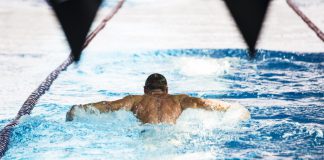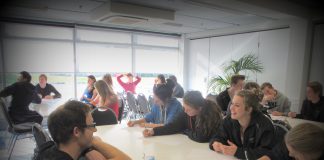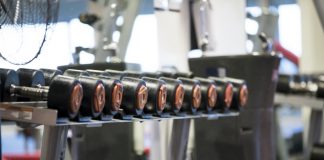One of the biggest factors in the success, or otherwise, of any sport is the quality of coaching. From grassroots to high performance, a coach has a significant impact on everything from participation, enjoyment and, of course, performance.
Basketball New Zealand know the importance of coaches, and have been investing in an annual development conference to provide coaches an opportunity to network, learn from each other and hear from experts within and beyond the game. Despite being one of our biggest participation sports, basketball receives minimal funding at a high performance level, and what they do have has to support the Tall Blacks, Tall Ferns, age group and 3×3 programmes. One way the national body looks to develop the sport is through theoretical, tactical and professional development of full time coaches in the country, for them to then pay their knowledge forward among their local community.
The key driver in this initiative is Leonard King, Basketball New Zealand’s General Manager for High Performance. One of his directives is to increase the pool of talent in the men’s and women’s games, and investing in the people who oversee the players is a key step. “We know that these senior coaches are driving our sport forward in a positive direction,” Leonard tells. “The conference provides an opportunity for networking, professional and personal development, as well as to contribute to our bigger picture, as we look to build our vision for the next 10 years.”
In January at AUT Millennium, speakers from within and beyond basketball featured on the agenda, which also included practical sessions at the nearby Breakers training facility. Some of the attendees ran on-court and tactical sessions, while Massey University Professor Sarah Leberman worked through personality and leadership modelling; Chris Morrison from High Performance Sport New Zealand showcased different strategies for decision making; Scott Butler, Head of Referees in the Australian NBL, spoke on relationships between coaches and officials; and Pete Gallagher from the All Blacks discussed leadership in turbulent times. “It’s critical that we provide holistic development opportunities for our coaches and athletes in order to improve performance,” explains Leonard. “A wide range of insights from academics and experts in the sports arena allows our coaches to reflect on their own practice. We get excited about providing these opportunities for our coaches to grow and learn.”
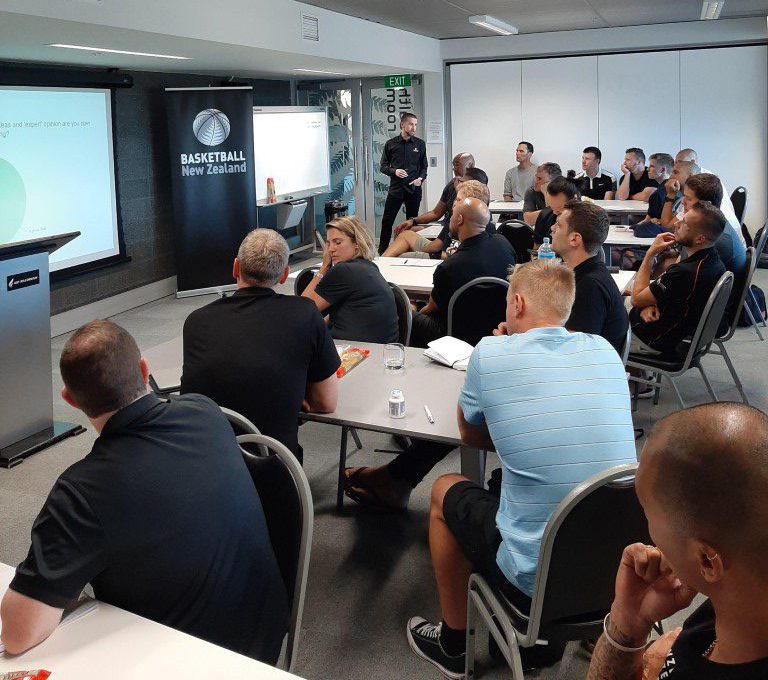
It’s this depth of knowledge that is required throughout the country. Taranaki-based Shay Haira, Assistant Coach of the Junior Tall Ferns, says limited resources means they’re not exposed to this level of learning. “All of this takes time and money, and in the regions, we don’t have the ability to get in speakers of this quality,” she says. “The sessions were mindblowing for me. I’ve won a national title, so I think I’m a good coach, but then I come to these sessions and realise exactly what my strengths are and what I’ve still got to learn.” As an example of the camaraderie within the sport, Shay has formed a close connection with one of last year’s speakers, Chantal Vallée, a professional coach who broke the gender barrier coaching the Hamilton Honey Badgers in Canada. “Chantal and I keep in touch on Facebook, she’s attended one of our junior camps, and she offered me the opportunity to visit her in Canada. It’s so cool to be around these smart basketball brains, see how they work and what I can take back to our association.”
One of the more experienced coaches in attendance was Mick Downer, who wears two hats within the Canterbury region. Mick coaches the Canterbury Rams in the National Basketball League, and as Programme Director for Canterbury Regional Basketball Association, is charged with overseeing the development of players in their catchment area. Mick’s CV is extensive, and includes coaching professionally in the NBL and being part of the Australian Boomers’ 2016 Olympic staff. In his roles both here and in Australia, he’s found coach development is a common theme. “Developing coaches should just be a function of sport,” he tells. “The challenge has always been to provide ongoing support and development, keeping your coaches up to play with technology and international trends. It’s great to see Leonard bringing together a group of coaches and having them be involved in mapping out the next decade of the sport here in New Zealand.”
One of the coaches in Mick’s region is Lori McDaniel, who played at age group level before heading into the American college system. When she returned to New Zealand and tried her hand at coaching, her default style was how she’d been coached herself. “The American style of coaching is very dramatic, very vocal and dominating,” she tells. “As a country, we’re moving towards athlete-centred coaching, so that style doesn’t work here.” Her experiences at coaching conferences has allowed her to think through her personal coaching style, and how best to translate that back to her athletes. “I’ve learned the tools to shift and change towards the coach I want to be,” she says. “I’m quite an emotive, high energy person, but this environment is helping me be more intentional in every aspect of my coaching.”
For Vince Minjares, implementing a more ‘professional’ approach to coaching in the North Harbour region is one of his key objectives. As Development Officer for North Harbour Basketball, anything which grows and supports the game is in his edict, and he’s keen to invest in coaches who know and love the game. “Every sports code needs parent coaches at some levels,” he tells, “but I’m looking to develop the 23 year old straight out of uni who loves basketball, loves coaching kids, and wants to stay in the game. We can introduce them to coaching younger age groups, and support them up through the levels.” The Harbour region has more young people playing basketball than any other association in the country, which also means more coaches, and Vince wants to keep them involved. “It’s been interesting to hear where Basketball New Zealand are going with their high performance programme, from a style of play and tactics perspective, and how I can feed that back and upskill the coaches in our region.”
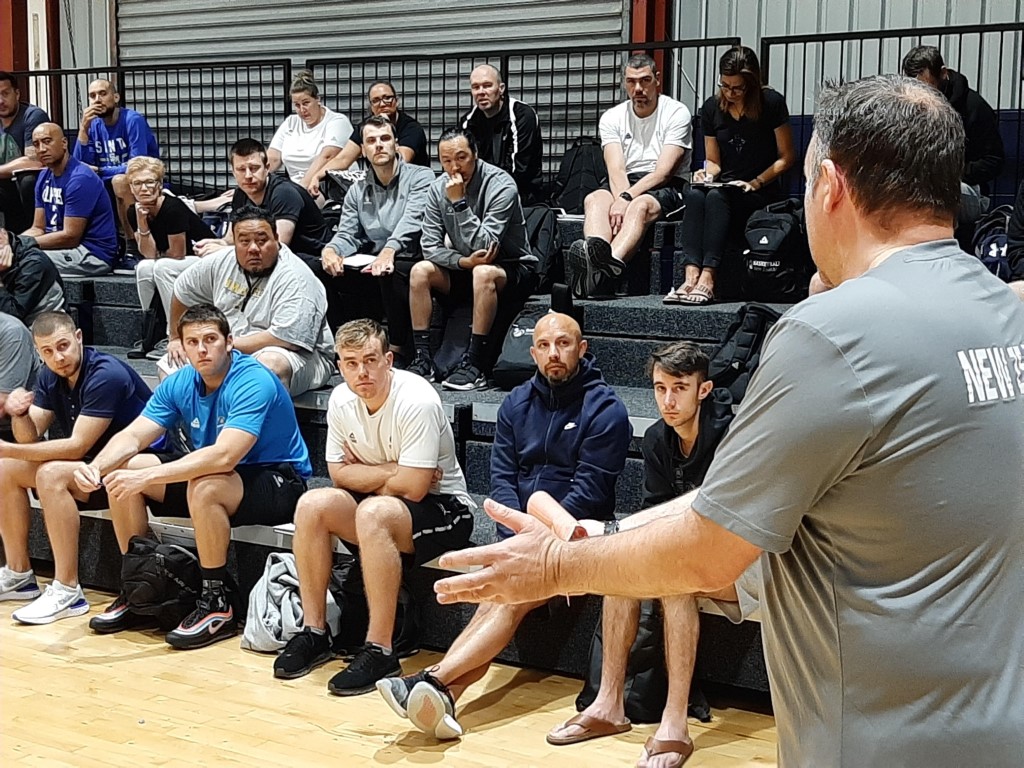
FUTURE OF THE GAME
Despite funding challenges, basketball keeps growing around the country. 2020 is an especially exciting year, with both the Tall Blacks and Tall Ferns looking forward to Olympic qualification campaigns. There’s also the move to align the national women’s league under the same umbrella as the men’s competition. “It matches the shift in valuing women’s sport in general,” Lori says. “Women’s games will be on Sky weekly now, which brings visibility to the pathways. Young girls will be able to see basketball on TV and say ‘I want to play that sport, and I can.'”
Leonard is positive about the state of the game in New Zealand, with participation numbers continuing to grow. In his position, he sees all in regard to advancements and potential roadblocks at all levels. “We will need to address challenges in the infrastructure space, more facilities, improved referee development and the professionalisation of administration and governance in our sport,” he says. “There’s also plenty to be optimistic about, with the sport showing encouraging signs of growth and stability. There was a very positive vibe at this year’s conference as we set the themes and planned ahead for the next decade.”
This feeling was echoed by the coaches in attendance, who appreciate the efforts Leonard goes to not only logistically, but in putting together an engaging and educational agenda. “He’s not one to blow his own trumpet, but he does so much behind the scenes to promote the game,” says Shay. “He’s transparent about what he’s doing, which is all about helping basketball. He just loves the game, this conference wouldn’t happen without him.”
And his efforts are not in vain, with his charges taking heed of his drive to have coaches coaching coaches. “Sometimes as a coach, you can feel like you’re operating in isolation,” muses Lori. “Coming here, I realise that I can help others as much as they’re helping me. Coaching is a collective thing – we better ourselves, which betters our athletes, which betters the game.”
All images supplied by Basketball New Zealand.































